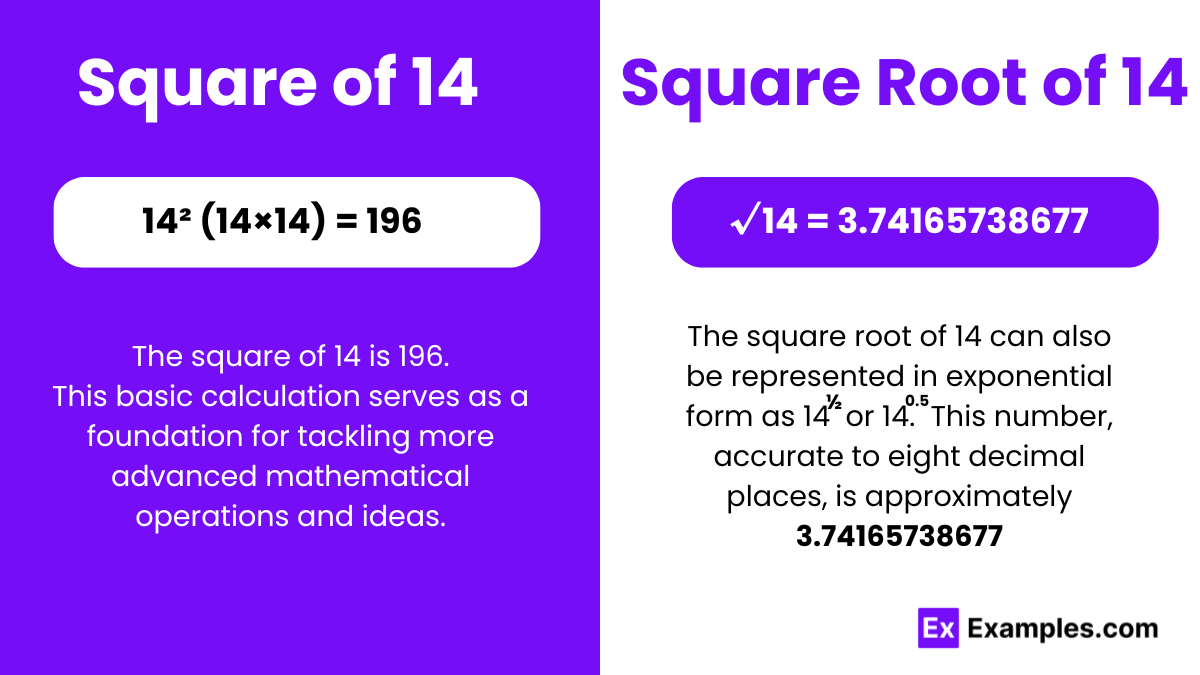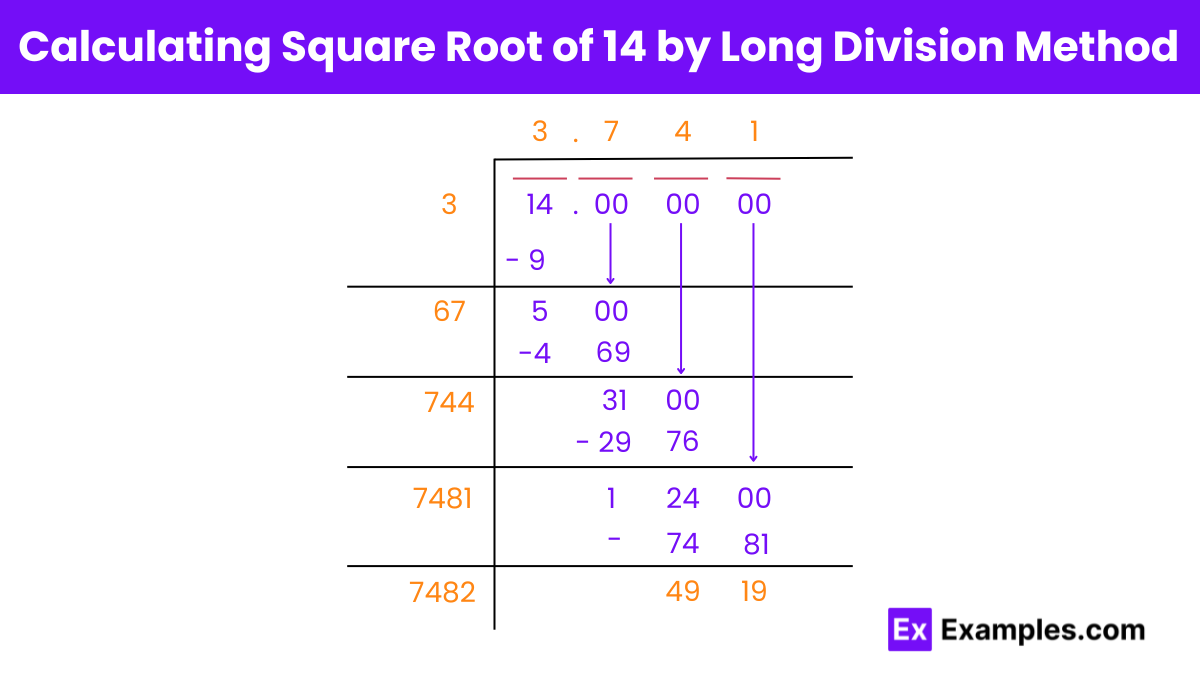What is the square of 14?
196
198
200
202

The square of 14 is 196. In mathematical terms, when you multiply 14 by itself, the result is 196. Squaring a number involves multiplying it by itself, and in this case, the product is 196. Understanding squares and their properties is fundamental in various mathematical concepts and practical applications, such as geometry, algebra, and physics.
Or
√14 = 3.741 up to three places of decimal.
The square root of 14 is an irrational number, approximately equal to 3.74166. This means that when you multiply this number by itself, the result is 14. Finding the square root of 14 involves using mathematical methods such as long division or approximation techniques. In practical terms, the square root of 14 may be used in calculations involving areas, distances, or other measurements in various fields like engineering, science, and finance.
Exponential Form of 14: 14¹/² or 14⁰.⁵
Radical Form of 14: √14
The square root of 14 is an irrational number.
To determine whether the square root of 14 is rational or irrational, we need to understand the definitions of these terms.
When we calculate the square root of 14, we find that it cannot be expressed as a fraction of two integers. Furthermore, its decimal expansion continues indefinitely without repeating. Therefore, by definition, the square root of 14 is an irrational number.
There are several methods to find the value of the square root of 14:

To find the square root of 14 using the long division method, follow these steps:
The square root of 14, when rounded to the nearest whole number, is approximately 4. This is because the actual value of √14 is about 3.74, which is closer to 4 than to 3 when rounded.
Yes, 14 squared, which equals 196, is a perfect square. A perfect square is the product of an integer with itself, and since 196 is the result of 14 multiplied by 14, it qualifies as a perfect square.
The cube root of 14 is considered irrational. It cannot be expressed as a simple fraction because there’s no integer whose cube is exactly 14. Its decimal form is non-repeating and non-terminating, which are characteristics of irrational numbers.
14 is not considered a perfect number in mathematics. A perfect number is defined as an integer that is the sum of its proper positive divisors, excluding itself, and 14 does not meet this criterion.
No, 14 is not a perfect square. A perfect square is a number that can be expressed as the square of an integer, and there’s no integer whose square is 14.
In conclusion, The square of 14 is 196, while the square root of 14 is approximately 3.74166. Understanding these numerical relationships is essential in various fields like mathematics, physics, and engineering. Squaring a number involves multiplying it by itself, while finding the square root involves determining the number that, when multiplied by itself, equals the given number.
Text prompt
Add Tone
10 Examples of Public speaking
20 Examples of Gas lighting
What is the square of 14?
196
198
200
202
Which of the following is closest to the square root of 14?
3.7
3.8
3.9
4
If x² = 14, what is x?
3.4
3.6
3.8
4.0
Simplify √14 to its decimal form.
3.73
3.74
3.75
3.76
What is (14)²?
192
194
196
200
Find the approximate value of √14 to two decimal places.
3.73
3.74
3.75
3.76
Which number is closest to 14 but not a perfect square?
12
15
16
18
What is 14 raised to the power of 0.5?
3.7
3.8
4.0
4.1
Calculate 14 × 14.
192
194
196
198
What is the square root of 14 rounded to the nearest integer?
2
4
6
8
Before you leave, take our quick quiz to enhance your learning!

